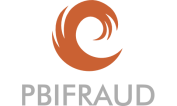Discovering PBI (Pre-Bank Instrument) fraud involves careful scrutiny of the offers, due diligence, and awareness of red flags. Here’s how you can uncover and protect yourself from such fraudulent schemes:
**1. Understand the Basics of Bank Instruments
- Educate yourself on financial instruments like SBLCs (Standby Letters of Credit), BGs (Bank Guarantees), and MTNs (Medium-Term Notes).
- Familiarize yourself with legitimate processes for issuing, verifying, and monetizing these instruments.
2. Verify the Issuing Bank
- Check Bank Legitimacy: Ensure the issuing bank is a recognized financial institution with a verifiable reputation.
- Contact the Bank Directly: Use official contact channels (not provided by the fraudster) to confirm the existence of the instrument.
- SWIFT Verification: Genuine bank instruments are transmitted via secure networks like SWIFT, which can be independently verified.
3. Assess Documentation Authenticity
- Check for Forgery: Look for inconsistencies, spelling errors, or poor-quality formatting in provided documents.
- Authenticate Seals and Signatures: Cross-check with the issuing institution to confirm these details.
4. Recognize Common Red Flags
- Advance Fee Requests: Fraudsters often demand fees upfront for issuing, transferring, or verifying instruments.
- Unrealistic Returns or Offers: Promises of abnormally high profits or extremely favorable terms are likely fraudulent.
- Unusual Payment Methods: Requests for payment via untraceable means, such as cryptocurrencies or offshore bank accounts.
- High Pressure and Urgency: Pushing you to act quickly to avoid “losing the opportunity.”
5. Conduct Counterparty Due Diligence
- Research Reputation: Investigate the broker or intermediary offering the deal. Check for reviews, complaints, or legal issues.
- Verify Credentials: Request and confirm professional certifications or business licenses.
6. Use Professional Verification Services
- Engage legal, banking, or financial professionals to assess the legitimacy of the transaction.
- Specialized firms can authenticate instruments, validate financial claims, and identify potential fraud.
7. Avoid Unregulated Markets
- Stick to Reputable Platforms: Use only licensed and regulated financial institutions or marketplaces for such transactions.
- Beware of Offshore Entities: Be cautious with entities operating in jurisdictions with lax regulatory oversight.
8. Look for Transparency
- Legitimate Entities Share Information: Fraudulent actors often withhold critical details, claiming confidentiality or trade secrets.
- Demand Clear Documentation: Insist on full disclosure of the deal structure, parties involved, and terms.
9. Use Technology and Tools
- Blockchain Analysis: If cryptocurrencies are involved, use blockchain explorers to trace transactions.
- Digital Document Verification: Use specialized tools to identify forgery or tampering.
10. Report Suspicious Activity
- Contact Authorities: Notify financial regulators or law enforcement about suspected fraud.
- Inform the Bank: Report any misuse of their name or instruments to the issuing institution.
Key Red Flags Checklist
- Upfront fees or deposits.
- Promises of unrealistic profits or loan approvals.
- Lack of transparency about the deal or parties involved.
- Difficulty verifying instruments with banks.
- Untraceable payment methods or offshore accounts.
By staying vigilant, conducting thorough research, and relying on trusted financial professionals, you can identify and avoid PBI fraud schemes effectively.



